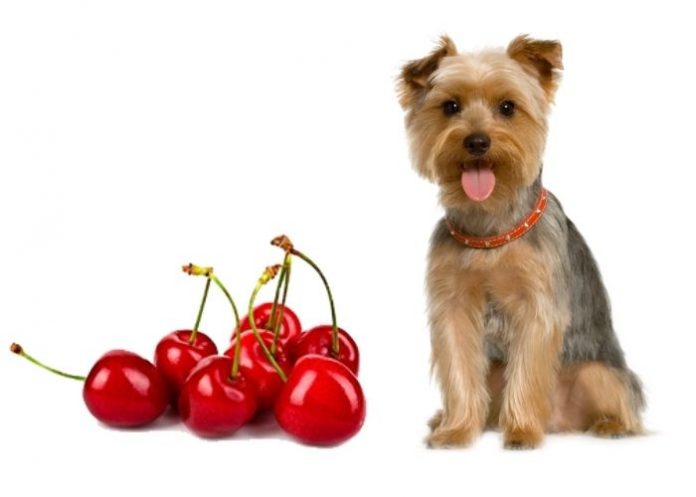Can dogs eat cherries? The answer is very simple, dogs can not eat cherries, even though your dog may have eaten a third or two cherries in the past and felt good after that.
Many fruits are healthy and safe for dogs, but while cherries do not contain some beneficial nutrients, they can do much more harm than good and are usually not worth the risk. There is an abundance of human food that is good for dogs and brings a better choice than cherries. Here’s what you should know when it comes to dogs and cherries.
Why are cherries bad for dogs?
Pits, stems, and cherry leaves contain cyanide which is toxic and can cause poisoning in dogs if consumed in large quantities. Although the amount of cyanide in one or two cherries is probably not enough for serious damage, there is no need to risk poisoning when there are many alternatives to cherries that can provide the same health benefits that your dog could get from them.
Cherry pits are also a problem for dogs as they can cause bowel obstruction. This is the most common problem in dogs when they eat cherries, and it is a serious problem that can lead to unpleasant complications.
What about Maraschino cherries, pit-free cherries, or Cherry Flavored foods?
Maraschino cherries are sweet fruits that you often see served in drinks, and do not have their own pits. Sometimes the stems are also removed. The main problem is that maraschino cherries are filled with sugar, which is not good for dogs. For a lot of sugar it can cause diabetes or obesity in the long run and gastrointestinal problems in the short term.
Cherries that have been removed and stems removed may be a better option for dogs. Cherries as fruit contain vitamin A and C, fiber, antioxidants, melatonin and other potentially beneficial nutrients. There are plenty of other fruits and foods available that do not come with the risks associated with cherries, nor do they require you to go through the hassle of removing pits. Apples that are served without the core or seeds have both fiber and vitamins. Blueberries contain a lot of antioxidants. These fruits contain sugar and can upset some dog bellies, so they are not for every dog and should not be given in large quantities, but they are a safer option than cherries and can have great health benefits when safely helping dogs. You should consult your veterinarian before giving your dog food.
Cherry-flavored foods are usually full of artificial flavors, chemicals, and sugars. These are not good for dogs. Even foods that are naturally spiced with real cherries are often quite sweet. It is best to stick to real foods that contain ingredients that you know and are known to be safe for dogs. You can ask your nutritionist or your veterinarian for further advice on which foods are safe and healthy for your dog.
What to do if your dog eats cherries?
One or two cherries should not cause much damage, but you should watch out for signs of cyanide poisoning in your dog. The risk of poisoning is greater than the cherries your dog eats. Symptoms of cyanide poisoning in dogs include difficulty breathing, bright red gums, dilated pupils, and in severe cases, dogs may go into shock. Dogs can also suffer from an upset stomach or diarrhea.
Symptoms of gastrointestinal obstruction include constipation, decreased appetite, and vomiting. You should watch out for these symptoms for at least 24 hours after your dog eats cherries. If you notice signs of gastrointestinal obstruction, consult a veterinarian as soon as possible.





